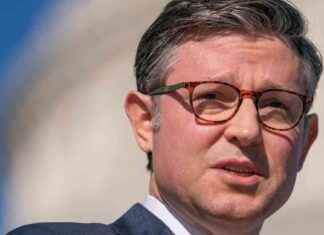Filling a key role on President’s Day, Donald Trump tapped Army Lt. Gen. H.R. McMaster, a prominent military strategist known as a creative thinker and intellectual, as his new national security adviser, replacing the ousted Michael Flynn.
Retired Army Lt. Gen. Keith Kellogg will now serve as the National Security Council chief of staff, Trump said. Kellogg, who had been Trump’s acting adviser, has deep family roots in Long Beach.
While the president was pleased to complete the gaps on his security team, thousands of demonstrators turned out Monday across the U.S. to challenge Trump in a protest dubbed Not My President’s Day. The demonstrations — staged in Los Angeles, New York, Chicago, Atlanta, Philadelphia and more than two dozen other cities — didn’t draw nearly as many people as the million-plus who thronged the streets in January, but the message was similar, with protesters decrying Trump’s stances on the environment, immigration, free speech and Russia.
Across the Atlantic, thousands of protesters also rallied against Trump outside Britain’s Parliament, while lawmakers inside urged the government to rescind its offer to the president of a state visit stamped with pomp, pageantry and royal approval.
Meanwhile, Vice President Mike Pence on Monday trekked to Europe to defend the president and persuade European officials that he intends to stand with the European Union and the NATO military alliance.
European Union Council President Donald Tusk said he had “open and frank talks” with Pence and that the bloc would watch closely to ensure the U.S. acts on its words of support.
“Too many new and sometimes surprising opinions have been voiced over this time about our relations — and our common security — for us to pretend that everything is as it used to be,” he said, adding that Europe was counting on the United States’ “wholehearted and unequivocal” support.
Tusk added, “Both Europeans and Americans must simply practice what they preach.”
Trump’s benevolence toward Russian President Vladimir Putin and campaign rhetoric that included branding NATO obsolete and vowing to undo a series of multinational trade deals has sparked anxiety in Europe. Trump was also supportive of Britain’s vote last year to leave the 28-nation EU, a withdrawal known as Brexit. And he has suggested that the EU itself could soon fall apart.
In Brussels, Pence said Trump had asked him “to express the strong commitment of the United States to continued cooperation and partnership with the European Union.”
‘Tremendous talent’
Trump had high praise for his new national security chief, calling McMaster “a man of tremendous talent and tremendous experience.”
In a White House statement issued late Monday, McMaster said he was honored to serve in his new role, adding, “The safety of the American people and the security of the American homeland are our top priorities.”
The president’s choice further elevates the influence of military officers in the new administration. Trump, who has no military or foreign policy experience, has shown a strong preference for putting generals in top roles. In this case, he tapped an active-duty officer for a post that’s sometimes used as a counterweight to the Pentagon.
McMaster, who wore his uniform for the announcement, joins Defense Secretary Jim Mattis and Homeland Security Secretary John Kelly, both retired generals, in Trump’s inner circle of national security advisers. The White House said Monday McMaster plans to remain on active military duty.
He will take on the challenge of leading a National Security Council that has not adjusted smoothly to Trump’s leadership. The president suggested he does not trust holdovers from the Obama administration and complained about leaks to reporters. His decision to put his top political adviser on the senior committee of the National Security Council drew sharp criticism. On Friday, the head of the council’s Western Hemisphere division was fired after he criticized Trump’s policies and his inner circle of advisers.
McMaster is viewed as a soldier-scholar and creative thinker. He has a doctoral degree in history from the University of North Carolina and has been heavily involved in the Army’s efforts to shape its future force and its way of preparing for war. He is currently the director of the Army Capabilities Integration Center, a sort of military think tank, at Fort Eustis, Virginia.
Outside of the Army, he may be best-known for his 1997 book, “Dereliction of Duty,” a searing indictment of the U.S. government’s mishandling of the Vietnam War and an analysis of what he called the “lies that led to Vietnam.” The book earned him a reputation for being willing to speak truth to power.
McMaster commanded troops in both American wars in Iraq: in 1991, when he fought in a storied tank battle known as the Battle for 73 Easting, and again in 2005-2006 in one of the most violent periods of the insurgency that developed after the U.S.-led invasion in 2003.
He is credited with using innovative approaches to countering the insurgency in the northern Iraqi city of Tal Afar when he commanded the 3rd Armored Cavalry Regiment. He later served as a special adviser to the top U.S. commander in Iraq.
McMaster was Trump’s second choice to replace Flynn, who has been under FBI investigation for his contacts with Russian officials. Trump dismissed Flynn last week after revelations that the adviser had misled Pence about the nature of his discussion with Russia’s ambassador to the U.S. during the presidential transition. Trump said in a news conference Thursday that he was disappointed by how Flynn had treated Pence but did not believe Flynn had done anything wrong by having the conversations.
Trump’s first choice to replace Flynn, retired Vice Adm. Robert Harward, turned down the offer.
Our editors found this article on this site using Google and regenerated it for our readers.







